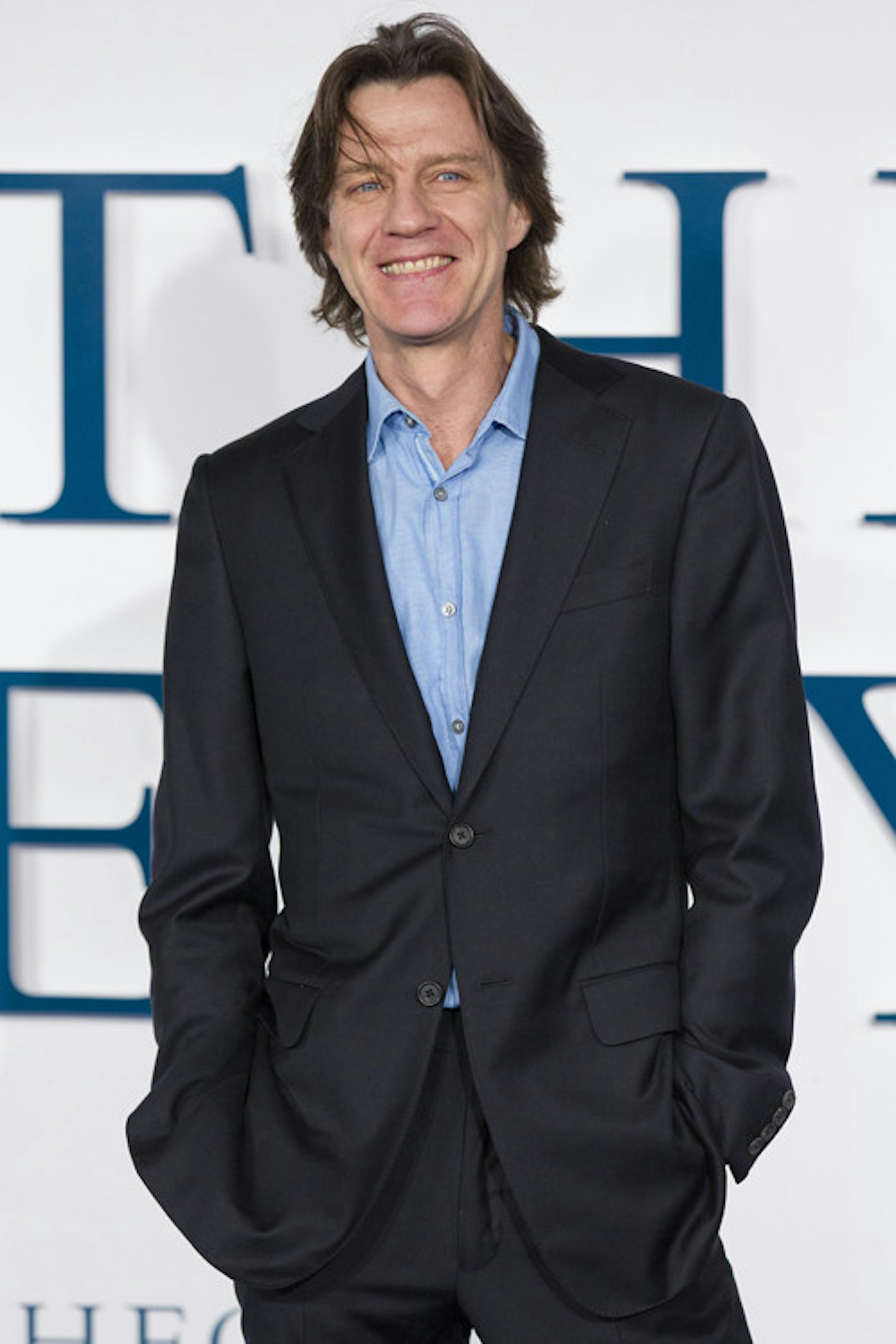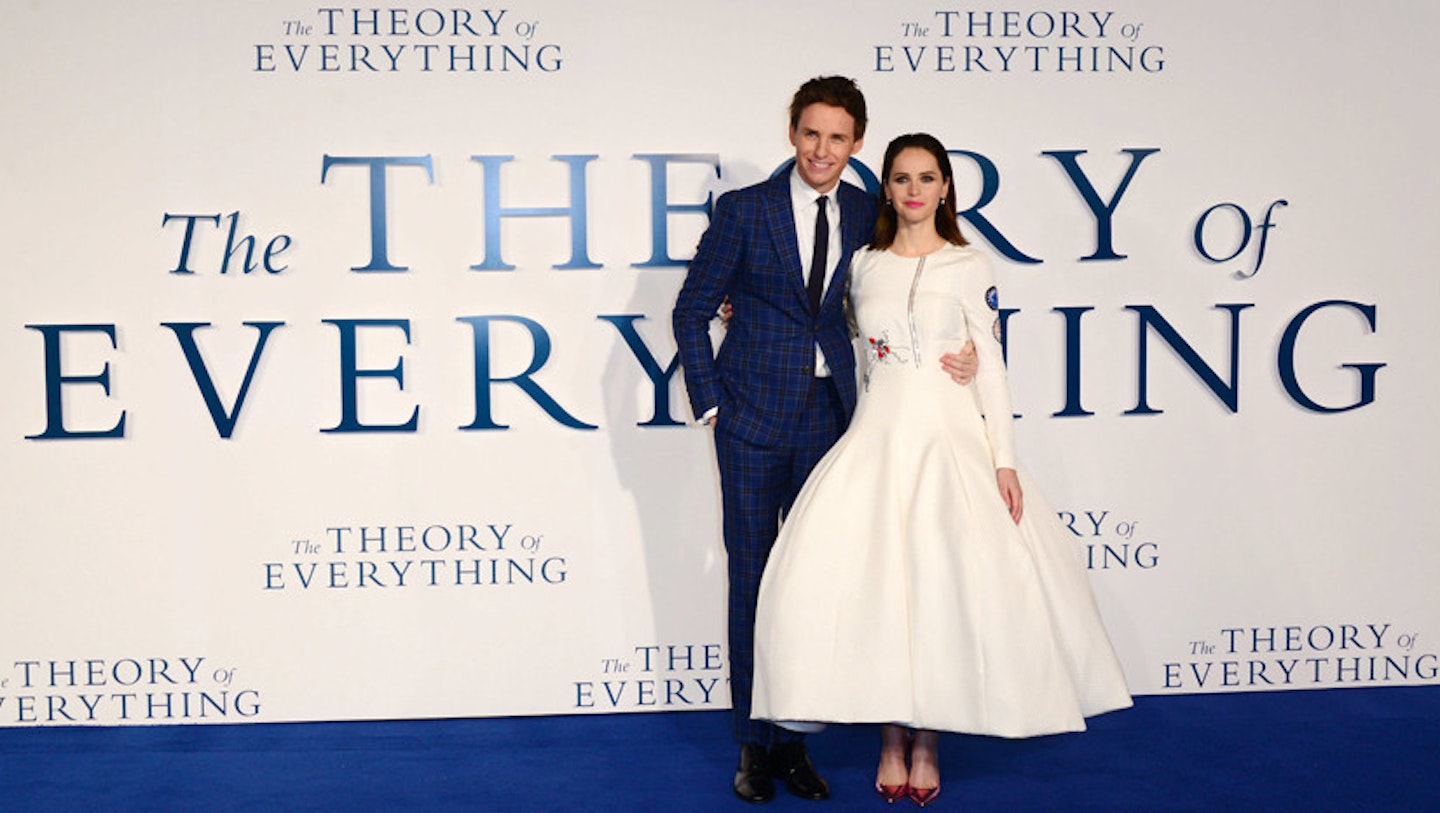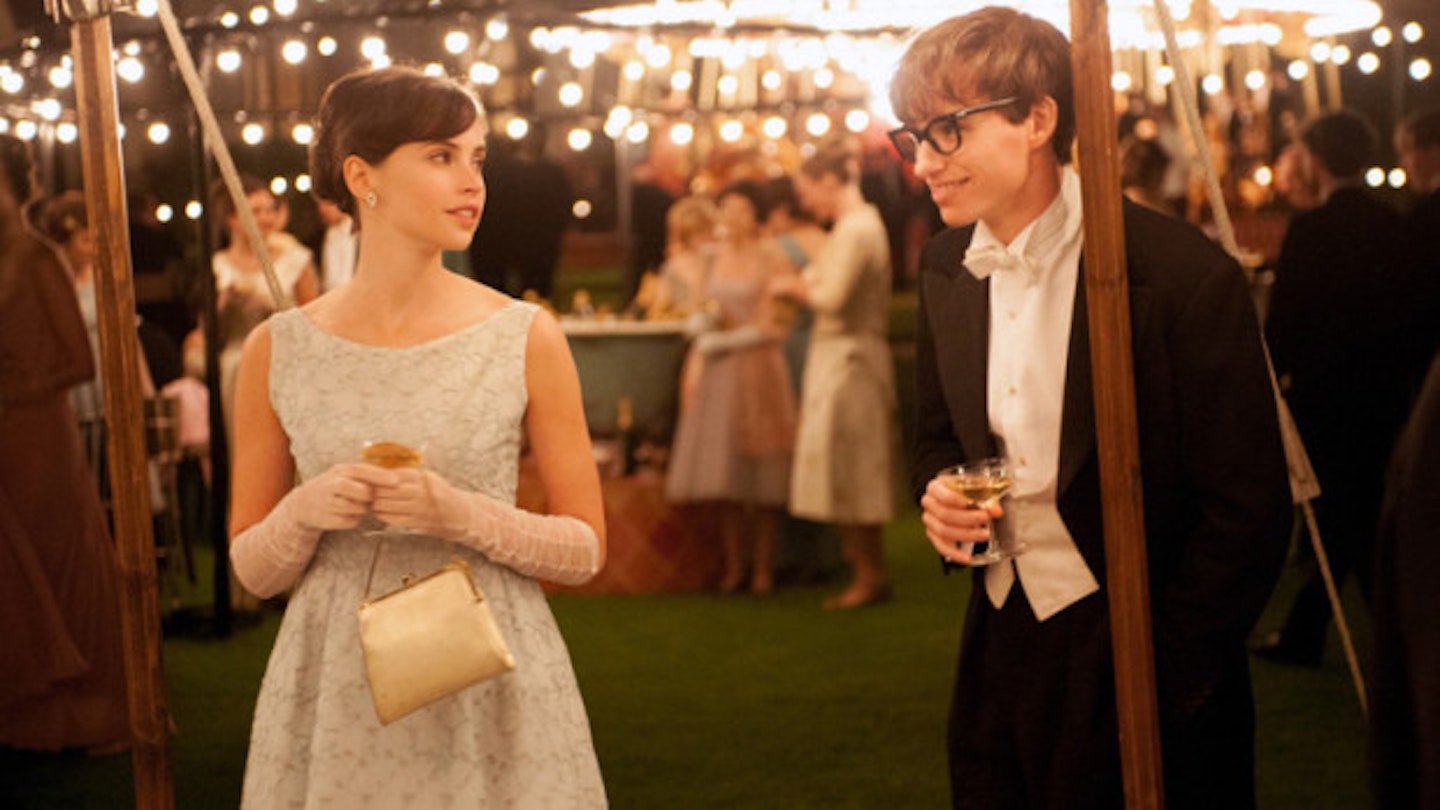When it was announced that Eddie Redmayne (who for the record is as divine in person as he is on-screen) was going to play renowned physicist and cosmologist Stephen Hawking in an upcoming biopic, everyone wondered, just how is this going to work? It was always going to be tricky to a) play someone who is still alive and b) respectfully and accurately portray someone with a degenerative condition like motor neurone disease. But considering the nod of approval from Stephen himself and all the award noise surrounding the film, it’s safe to say they nailed it.
Not just for science buffs and Redmayniacs, the film is actually based on Stephen’s first wife, Jane’s memoir Travelling to Infinity: My Life with Stephen, and spans from when the pair first meet in the 60s as carefree Cambridge University students to the disintegration of their marriage 25 years later. You’ll learn as much about Jane (played by Indie-queen Felicity Jones) as you do about Stephen and be warned, you will blubber like a baby.
We caught up with Fliss and The Theory Of Everything director James Marsh to talk love triangles and getting emotional on set…

**So we basically cried throughout the whole film. **
James: Oh, I’m sorry about that.
Why did you cast Eddie and Felicity?
James: I met Eddie in a pub and he understood what preparation this would entail and was suitably daunted by it. He had a nice physical resemblance to the young Stephen Hawking, which was helpful, and also he’s a very good actor! Felicity, I’d seen in some small independent films and really liked and then when we brought them together, it was extraordinary.
**What was the most emotional scene to shoot? **
James: Without question for me it’s when our two main characters who we’ve followed from falling in love to the difficulties in their marriage, separate. And given Stephen’s disability, he can only really slowly say things so by definition there’s lots of silence and as we shot it, the actors were doing things full of subtleties that were emotionally powerful.
Felicity: I feel like they split up in an earlier scene with the spelling board. I feel like that’s when the relationship disconnects and when they actually break-up, it’s them having to acknowledge that. I could feel Jane knew the relationship was disintegrating in that moment and she couldn’t do anything. She wanted so much to retain this communication but it was dissolving in front of her and when they actually split up, there’s been time to breathe and it’s a different kind of pain, it’s the pain of letting each other go.
Why did you feel that Jane and Stephen’s story had to be told?
James: It’s a really unusual love story in all kinds of ways. When Jane decides to marry Stephen, she expects him to live for a couple of years and waste away and die and that doesn’t happen. That choice itself is a remarkable and very generous one.
Felicity: It questions the idea of what a happy ending is. It shows you that sometimes you don’t always find happiness with the person you expect. I think that’s what I like about the film, it ends in a divorce but it’s not necessarily the worst thing in the world because they find something that they need from someone else. It’s as much about friendship as it is about romantic love.
**What feedback did you get from Stephen and from Jane? **
James: We showed the script to Stephen before we started filming and he was gracious but not enthusiastic about the idea of it. Jane’s book was the source material for the film so she knew the film was going to be made and was ok with the script. It’s not a biopic of Stephen Hawking; it’s a portrait of his first marriage. Her and Stephen are equal parties in the story. When we’d almost finished the film, we showed it to Stephen and there was this awkward silence when we had to wait for him to type out his reaction and thankfully he said he felt it to be broadly true and that it was a surprisingly honest version of his marriage. He also offered use of his voice as a result.

Felicity, what was it like playing Jane?
I’ve played real people who are dead but never real people who are alive so it was nerve-wracking. I looked for her blessing to take on her story so I got to know Jane in a gentle way. It didn’t seem right to go in and start asking her personal questions straight away but a lot of the time, I would be talking to her and I would feel disingenuous because I’d be watching how she picks up a cup of tea and trying to absorb as much about her.
What was the biggest obstacle of filming?
James: Definitely for Eddie to be able to inhabit different aspects of his character’s life on any given day. He had to be able to be in a wheelchair for one scene and then walking around like any other student in another and in principle, that was a real challenge but in practice, it worked very well because he was well-prepared.
** Felicity:** Well I had to start going to the gym and I hate going to the gym because I realised that not only is Jane incredibly emotionally strong but she was physically strong as well. I remember doing a scene where they’re getting ready to go on holiday and Jane is packing up the children and the car and Stephen’s in the chair and she’s taking him out and I had to lift Eddie out of the chair into the car. After a morning of doing that, I was absolutely exhausted and thought how did this woman do this for 25 years?
Is it accurate that Jane took care of Stephen pretty much by herself to begin with?
Felicity: Yeah, they didn’t have any money; they were really poor. Stephen only became famous and wealthy after writing A Brief History of Time which was quite later on. In the early days, they were living on an academic salary which is hard when you have someone in that condition so Jane was the primary carer. Stephen was also quite reticent, understandably, about having outside care and that caused tension because it’s a lot for anyone to take on three children and a husband in that condition.
Talk to us about the love triangle in the film between Jane, Stephen and Jane’s church choir director Jonathan…
Felicity: The intention was to explore Jane and the situation of being in love with two different men for very different reasons and to explore that as truthfully as possible so there’s not any judgment on that and that was what was very important to me. It is a love triangle and there’s a platonic relationship between Stephen and Jonathan too.
The Theory Of Everything is in cinemas January 1.
Like this? Then you might also be interested in:
In Worst News Ever, Orange Wednesdays Is Ending. Here’s How To Spend Your Last Ones Wisely
Backstreet Boys Film Trailer Has Dropped And It's Pretty Much Everything We Ever Hoped It Would Be
Follow Delphine on Twitter @DelphineChui
This article originally appeared on The Debrief.
